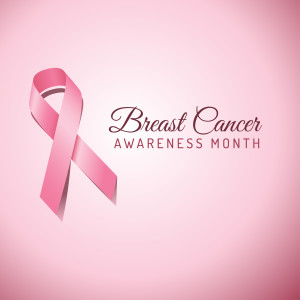Breast Cancer Risk Factors
 Cancer is a terrifying word. It seems beyond our control, but the truth is that there are ways to reduce your risk of developing the disease. This October, as we reflect on breast cancer awareness, prevention, and research, familiarize yourself with those factors that can increase your risk of breast cancer, and those that, for now, are simply myths.
Cancer is a terrifying word. It seems beyond our control, but the truth is that there are ways to reduce your risk of developing the disease. This October, as we reflect on breast cancer awareness, prevention, and research, familiarize yourself with those factors that can increase your risk of breast cancer, and those that, for now, are simply myths.
Fact: Exercise can reduce your breast cancer risk, as well as improve your overall health and wellness.
Myth: Though there have been concerns that parabens found in some body care products and cosmetics may increase the likelihood of cancer, research conducted to date has not concluded that exposure to parabens is a breast cancer risk factor. More research needs to be done on this topic, but for now, science has not been able to prove that parabens increase cancer risk.
Fact: Maintaining a healthy weight can reduce your breast cancer risk. It is especially important for breast cancer survivors to maintain a healthy weight as part of their continual recovery and prevention plan.
Myth: Though media reports have tried to link plastics to cancer over the past several years, there has been no scientific proof that exposure to plastics and Bisphenol A (BPA) can increase cancer risk. Despite reports that drinking water from a plastic bottle can increase the likelihood of breast cancer, it has not yet been scientifically proven.
Fact: In some studies, long-term or high levels of exposure to tobacco smoke have indicated increased risks of breast cancer, among other risk factors.
Myth: Secondhand smoke on the other hand, has not been definitively proven to increase the risk of breast cancer.
Fact: Limiting your consumption of alcohol can reduce your breast cancer risk.
Myth: There is also currently no data to support the theory that organic foods lower the risk of breast cancer.
Fact: Eating a healthy diet full of natural fruits and vegetables, healthy grains, good fats such as olive oil, chicken, fish, beans, and only limited amounts of red meat, can reduce the risk of breast cancer.
Other factors that are not known to increase the risk of breast cancer include:
- Abortion and miscarriage
- Exposure to certain types of pesticides and industrial chemicals
- Frequent use of bras with underwire
- Breast implants
- High consumption levels of caffeine
- Frequent use of cell phones
- Hair dyes and relaxers
- Frequent migraine headaches
- Breast trauma
Other factors under study that have not yet been intrinsically linked to increased breast cancer risk, but have also not been cleared from suspicion, include:
- Use of antibiotics
- Use of aspirin
- Birthweight
- Breast size
- Whether or not a woman was breastfed as an infant
- Use of fertility drugs
- Dairy products
- Dietary fat
- Soy
- Folic acid
- Multivitamins
- Levels of Vitamin D
- Meat consumption
- Frequency of skin moles
- High stress levels
With awareness of known risk factors and a commitment to leading a healthy lifestyle, you can put yourself in the best position to remain cancer free. Understand, however, that while these factors can increase or reduce your risk of cancer, there is no complete prevention strategy yet known. As women age, their risk of cancer inherently increases, but by living a healthy lifestyle, you can improve your chances of remaining cancer free as long as possible.
At Western New York OB-Gyn we are committed to helping our patients achieve optimal health and helping them discern between myths and facts. If you haven’t seen your doctor in more than a year, call today. We are currently accepting new patients at all of our locations.
